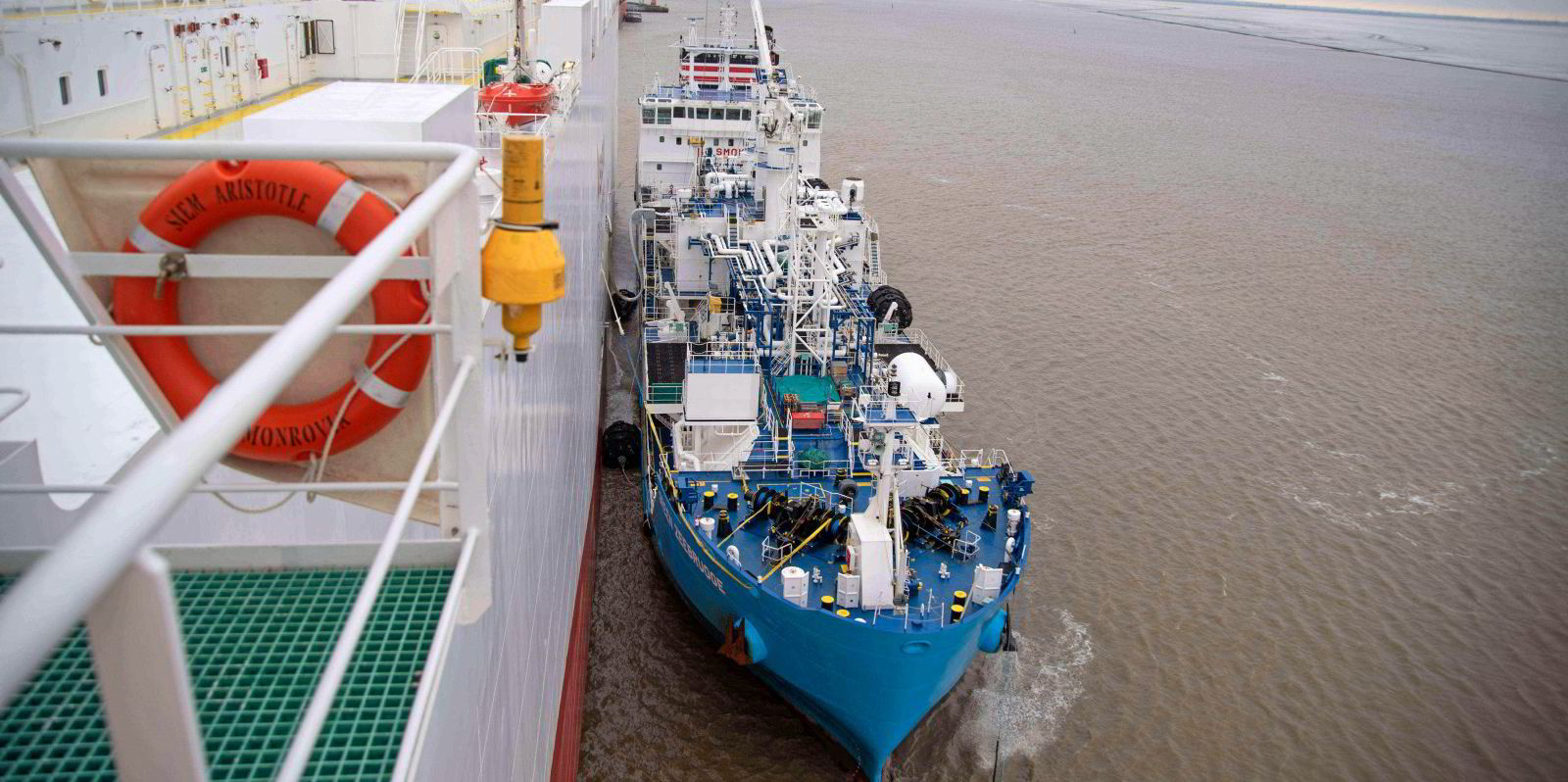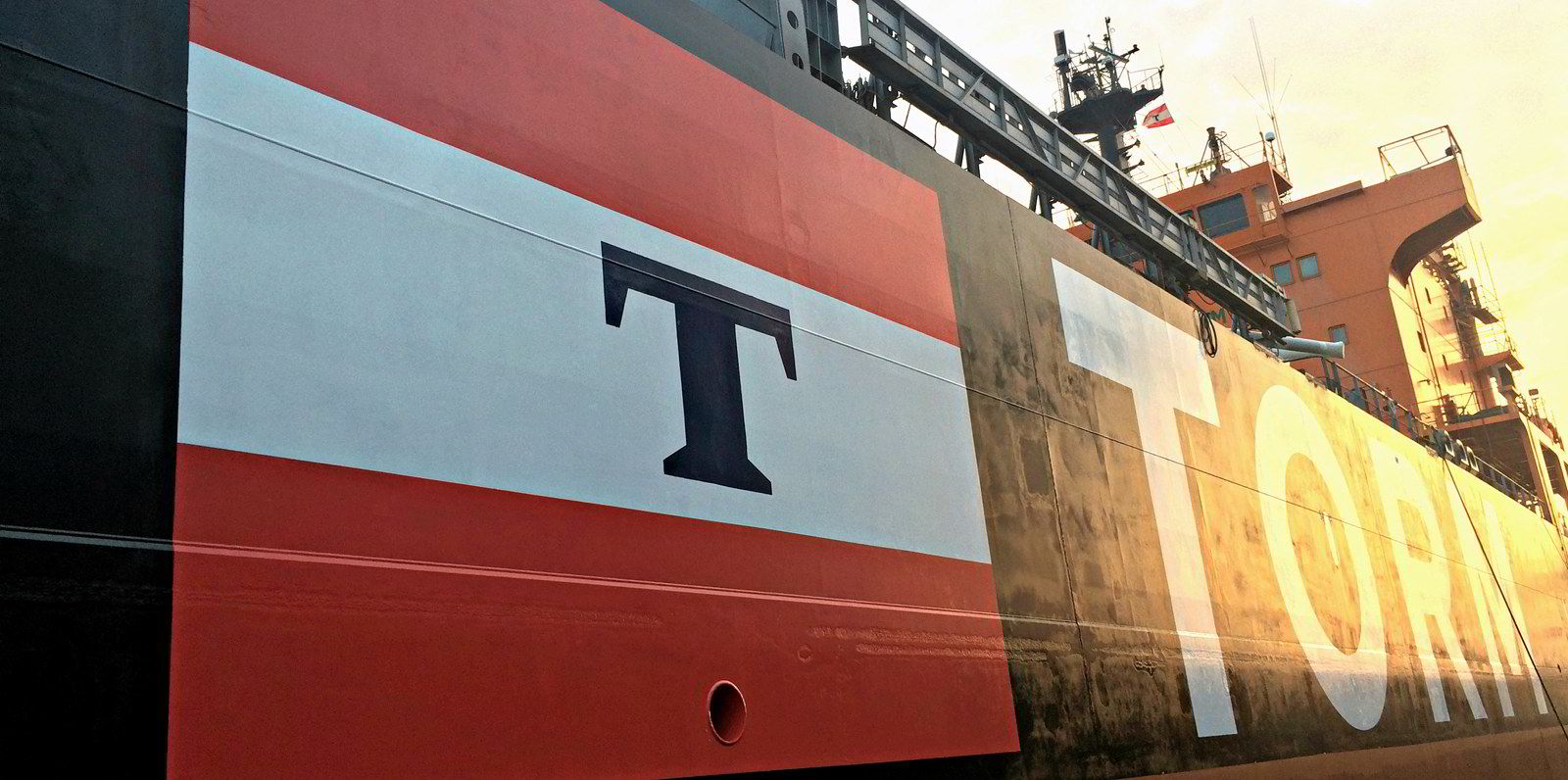More investors are focusing on environmental, social and governance (ESG) matters, but only shipowners willing to up their game can benefit from the growing liquidity pool.
Industry experts told TradeWinds that shipping companies need to become more data-savvy and socially responsible, and to watch out for regulatory developments in green finance to win over ESG investors.
The suggestions came after what many described as a “record-breaking” year for ESG financing despite a contracting global economy during the Covid-19 pandemic.
Morningstar figures showed net inflows to European sustainability funds almost doubled to $273bn in 2020, an all-time high level.
Their US counterparts attracted $51.2bn, more than doubling the previous yearly record of $21.4bn in 2019.
But only a limited number of shipowners have been able to secure sustainability financing so far.

“It's really in the beginning now,” said Monique Giese, KPMG's global head of shipping. “Everyone is trying to evaluate.”
Most shipowners, especially non-listed ones, are still reluctant to fix deals with interest rates linked to their sustainability performance.
Sean McLaughlin, marine consultancy Houlder’s strategy consultant, warned the mindset could be outdated as many banks raise funds from ESG investors themselves and need to improve their portfolios.
“I think shipowners need to be careful that they don't narrow their thinking,” McLaughlin said.
“[Sustainability financing criteria] will come to them by the back door, regardless of where they access their cash.”
In addition, many big charterers have set their own reduction targets for greenhouse gas emissions and are expected to tighten their tonnage requirements.
The latest examples include Geneva-based trading giant Gunvor, which promises to have a chartered fleet made up of 100% eco vessels by 2027.
McLaughlin suggested that in any case, shipowners are facing the pressure to enhance the green credentials of their vessels even though it may not directly come from financiers.
“It is more of things being driven from the consumer back down the supply chain that is having the impact,” he added.
“Charterers are looking at different levels of [environmental] performances.”
ESG measurement
Shipowners have potential obstacles in securing ESG financing due to the lack of regulations to measure how well they are doing, according to some experts.
Giese suggested shipping firms are able to present management plans for sustainability targets but cannot really validate their improvements.
The International Maritime Organization is set to introduce the first set of global decarbonisation regulations for shipping in 2023, but technical details on calculating ship emissions are still being ironed out.
“There is no common regulatory ground on how to calculate something. So there is no proof,” Giese said.
She reckons that shipowners can embrace digitalisation more as regulations evolve. A growing number of companies have begun to collect emissions and fuel consumption data via an integrated system.
“We have, well, a lot of data. But we are not data smart,” said Giese, adding that the deficit is one of the biggest challenges in the transition into a sustainable company.
Industry standards
Despite slow regulatory development, many in the private sector have attempted to develop ESG-related standards that can apply to the whole industry.
A group of major dry and wet bulk operators have launched the Sea Cargo Charter, which aims to provide a common approach to measuring CO2 emissions of each laden and ballast voyage.
Kris Fumberger, RightShip’s global sustainability manager, observed more interest in sustainability data for maritime transport from banks.
“Institutions are coming to us to understand what the options are, what data and insight there is in the market, so that they can understand [this subject],” Fumberger said.
RightShip, one of the world’s largest vetting agencies, rates vessel emissions on an individual basis.
“We really look to reward those that are investing in those efficiency measures” by giving them higher ratings, he added. “That's where our rating really comes to the fore.”
For example, a vessel that can be powered by zero-carbon fuels like ammonia or hydrogen would get the best emissions rating in its class, Fumberger said.
He noted that there has been growing focus on ship managers’ social responsibility during the Covid-19 pandemic, with many seafarers struggling to complete their shifts due to travel restrictions.
“In response to the human rights concerns, RightShip is due to officially enhance its crew welfare criteria for vetting vessels on 30 June.”
“The charterers are asking for more and more information on that side,” Fumberger said.








